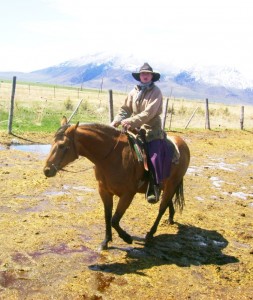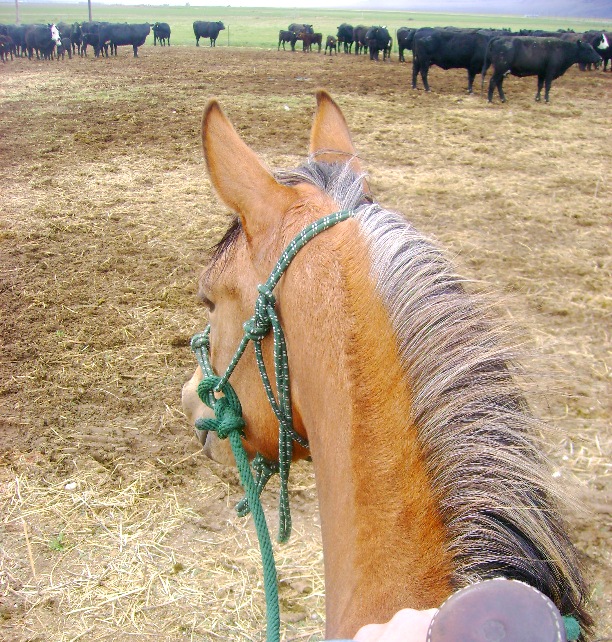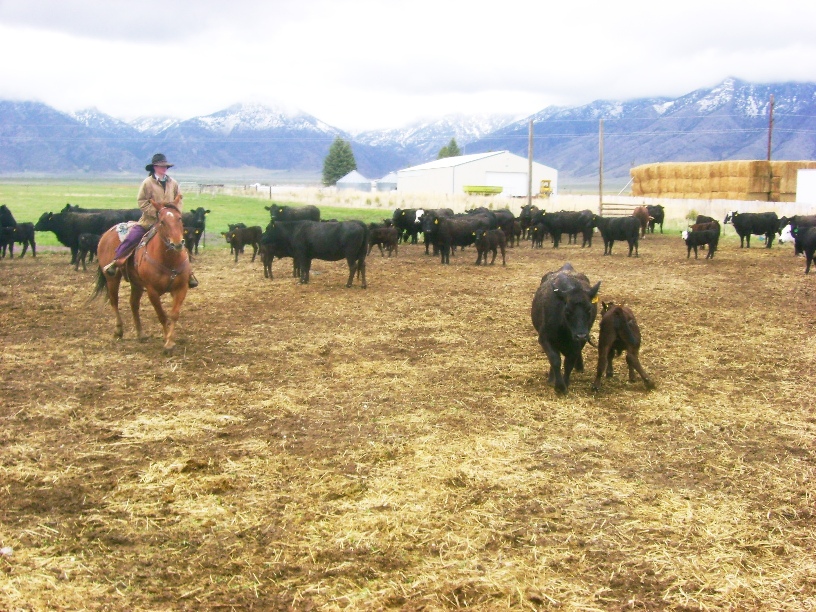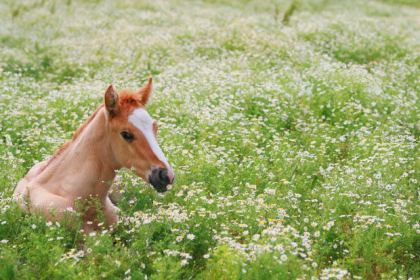 I got to go horseback riding with my little sister last week, which is something I don’t get to do that often, since there are about 18 hours of interstate between us. Being eleven years older than she, I sort of have that typical older sister mentality that she ought to listen to whatever I say and put at least a little stock in my opinion. And in some areas, she certainly does. But when it comes to horses, I might as well be talking to a brick wall.
I got to go horseback riding with my little sister last week, which is something I don’t get to do that often, since there are about 18 hours of interstate between us. Being eleven years older than she, I sort of have that typical older sister mentality that she ought to listen to whatever I say and put at least a little stock in my opinion. And in some areas, she certainly does. But when it comes to horses, I might as well be talking to a brick wall.
In my sister’s defense, she knows the ranch and the horses better than I do, and she’s taken over the horse training since we older girls went off to college. She’s done a great job with the horses she’s worked with, and it is neat to see them coming along in their training, she has put a lot of time and attention into them. But it bothers me a little that she doesn’t know some of the tried and true techniques that my older sisters and I have always used with training colts, and she doesn’t seem that anxious to learn.
I think perhaps it is just a “given” that if you’re a horse person you are set in your ways. For instance, my sister was riding her three year old Quarter Horse filly, Chickory. She had her in a full-mouth snaffle, and was getting a good response with it, and the little mare was performing like a veteran cowhorse. But halfway through the day’s work, I noticed she had pink foam at the corners of her mouth, and I mentioned it to my sister. My sister checked the filly’s mouth and couldn’t find any apparent sores, just pink colored foam beneath the bit at the corners of her lips. She was going to trade horses anyway, and let me ride her filly while we did some cattle sorting. I asked her if by chance she had a bosal or hackamore that I could use on Chickory instead of the snaffle. My sister brushed my question aside and said, “No, she only wears snaffles.” I persisted, asking if I could just ride her in a rope halter and give her mouth a chance to heal a little. My sister agreed.
The filly worked great that day, though she was a little tired out and I had to push her to keep working the cattle. It was an all-day drive, with sorting and herding work to keep her busy. I noticed after a little bit that Chickory would start to turn when the halter rope touched her neck on the neck-rein side, though I was still basically direct-reining her. I wasn’t giving her a strong neck-reining signal, but the weight of the rope was enough for her to feel and begin to turn before she ever felt the direct pull on her nose. I mentioned this to my sister, and suggested she try a bosal or just the rope halter, because this was a very sensitive and eager-to-please little mare, and I felt she would be neck-reining in no time. But I really think my advice has fallen on deaf ears.

My sister has a little hang-up about bits. I had ridden her gelding, Challis, a year ago, and found him very chargey and unresponsive to the loose ring snaffle bit he was in. I told her he most definitely was old enough to wear a shanked bit and it would probably make a huge improvement on his behaviour, as I had trouble keeping him from running, and had to turn him in circles to keep him at a lower gait. She was definitely against using anything but that plain ring snaffle. Her gelding is great at cutting and sorting cattle, but often opens his mouth against the bit pressure, and evidences a stiffness through his neck and headset that makes me think a good shanked bit would do wonders for him. But no changing my sister, and she has the final say because he is her horse.
It made me think and evaluate my own attitude towards the advice I am given. I really don’t want to be set in my ways, or stuck in a rut because I think I know better than anyone else. It’s never too late to learn something new, and if I know anything about horses at all, I know that they are all different—each one is an individual, and I can’t be right 100% of the time. I’m going to keep working on my little sister, asking her how her horses are doing and seeing if I can sway her strong opinions in the slightest. And I’m going to keep my own mind open and malleable, because while I may think I know what I’m doing, being stuck in a rut can make you miss getting the best out of your horse.


